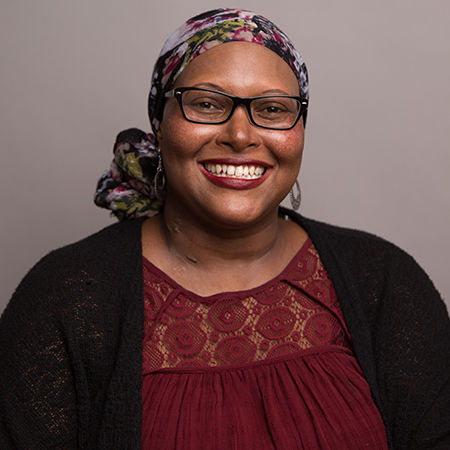Group creates opportunities for students bonding through discussion

Courtesy of Multicultural Student Affairs
Carmen Flagge, program coordinator for human sciences student services, created Growing through Relationships and Conversations with Others, or GRO, as a way to bring students together through social justice and conversation.
November 17, 2019
For students at Iowa State, there exists a group that allows them to have deeper discussions about social justice issues.
Growing through Relationships and Conversations with Others (GRO) is a discussion group for the College of Human Sciences students to have deeper conversations about social justice issues that build relationships cross culturally. The group meets twice a month in the spring semester and gives an opportunity for students to get to know one another over a shared meal.
“The main purpose is to dialogue in a healthy way around a conversation that we’ve been taught not to have at the dinner table or a conversation or topics that we’ve been told ‘You don’t bring them up,’” said Carmen Flagge, program coordinator for human sciences student services and leader of GRO.
GRO began in the spring of 2017, in the aftermath of the CyHawk incident in 2016, when then-presidential candidate Donald Trump was hosted at the university for the Cyclone-Hawkeye game. Student protests against his presence became violent due to non-protesters.
“There was just a lot of unrest on campus, and we felt like we [needed] to give students a space to be able to talk about that, and to teach them how to have this conversation in a healthy way,” Flagge said. “Because, it’s one thing to protest, and I definitely believe in the right to protest and I do believe in the power of protest, but I also believe that sometimes depending on where you’re at in your own development, […] you want to just sit down with a group of folks and really have a deeper conversation, and that doesn’t always happen when you’re in spaces where it’s one side against another.”
Flagge and her then-graduate student, Yvette Rodriguez, came up with the acronym and concept for GRO, which will be coming up on its fourth semester in session. Rachael Blansett and Alexia Angston, both former grauduate students, led the group in spring 2017 and spring 2018, and Flagge’s current graduate student, Kasandra Diaz will lead the group next semester.
The prompts to lead discussions are centered around current events, videos and articles and they are created by Flagge and her students.
GRO was made for the College of Human Sciences students to think about their own background, what makes them who they are and where they belong. It is limited to around 12 students because of the time commitment and to ensure a deeper conversation.
Flagge said the group allows them to begin relationships they may have for the rest of their lives, since the students are in similar fields and may become colleagues in their careers.
“I think […] it’s very easy to assume when you see people, you assume what their story is,” Flagge said. “But when we sit down around a table and we start talking and sharing, it is just very beautiful to see what comes out of people and what identities or just different life experiences that they have that have really shaped them to see things differently. But then they also help you to see things differently because you’re sitting in front of this person and you’re like, ‘Wow, that’s your life.’ […] It’s been a really rich experience for students.”
The topic for the next session of GRO will be “Navigating a Community in Crisis; Exploring Individual Experiences When Your Community is Divided.”
“[We] centered on that partially because of everything that’s happening on campus, but then also everything that’s happening not only in the country but in the world,” Flagge said. “There are all of these little divides, and, at least in our conversations with students, there’s all these questions about ‘How do you have that community? How do you get back to this place of a community when there are all of these different things going on?’”
GRO gives students who are ready to have more in-depth conversations a space to speak and listen to others who may have had extraordinarily different experiences.
Flagge said students who participate in the group feel more prepared for their professional fields and better understand their place in the world.
“Keeping it small, that’s where you can have impact,” Flagge said. “A lot of times when we think about how are we going to change the world, it’s like you want to think there’s one big silver bullet, and it’s like no, it really is all of those small interactions that make a difference. Thinking that you know something, and then having your mind be rocked to its core when you find out something very different, that only happens in those one-on-one and smaller group interactions. It really is about building that community, and it just takes time and intention.”






